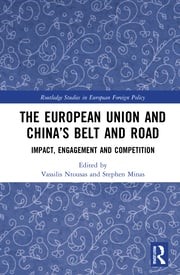France, China and the BRI: The challenge of conditional engagement

Moving away from its traditional low-profile attitude, China has gradually shifted to a muscular foreign policy in the wake of the 2008 global financial crisis and the resulting change in the global balance of power.
The Belt and Road Initiative (BRI) is the latest expression of the country’s rising assertiveness and willingness to play a more central role on the global stage. In response to this rising assertiveness, the last few years have seen a clear shift in France’s approach to China away from what may have been called naivety and towards more firmness. As for China’s BRI, although French authorities are favorable to its overall objective of connectivity enhancement, they refuse to endorse the project in its entirety. Following a logic of conditional engagement, they insist on compliance of BRI-related connectivity projects with the provisions of the Paris Agreement on Climate Change as well as with the G20 operational guidelines for sustainable financing. Moreover, French authorities tend to favor punctual cooperation in third markets. Interestingly, this tougher French stance has not led to any pushback from Beijing so far; far to the contrary, there are even signs that mild pressure has paid off, with China gradually integrating some widely agreed principles. However, whether these commitments will become reality remains to be seen. In this respect, the signals sent by China during the recent Covid-19 pandemic, with a more confrontational attitude, do not bode well for the future of the relationship.

Available in:
Regions and themes
ISBN / ISSN
Share
Related centers and programs
Discover our other research centers and programsFind out more
Discover all our analysesJapan’s Takaichi Landslide: A New Face of Power
Prime Minister Sanae Takaichi has turned her exceptional popularity into a historic political victory. The snap elections of February 8 delivered an overwhelming majority for the Liberal Democratic Party (LDP), driven by strong support from young voters, drawn to her iconoclastic and dynamic image, and from conservative voters reassured by her vision of national assertiveness. This popularity lays the foundation for an ambitious strategy on both the domestic and international fronts.
The U.S. Policy Toward Taiwan Beyond Donald Trump: Mapping the American Stakeholders of U.S.-Taiwan Relations
Donald Trump’s return to the White House reintroduced acute uncertainty into the security commitment of the United States (U.S.) to Taiwan. Unlike President Joe Biden, who repeatedly stated the determination to defend Taiwan, President Trump refrains from commenting on the hypothetical U.S. response in the context of a cross-Strait crisis.

China’s Strategy Toward Pacific Island countries: Countering Taiwan and Western Influence
Over the past decade, China has deployed a diplomatic strategy toward the Pacific Island Countries (PICs). This strategy pursues two main objectives: countering Taiwan's diplomatic influence in the region and countering the influence of liberal democracies in what Beijing refers to as the "Global South."

Opening up the G7 to South Korea to Address Contemporary Global Challenges
The G7’s global influence has diminished as powers like China reshape international governance through initiatives such as BRICS and the Shanghai Cooperation Organisation (SCO). With the G7 now representing just 10 per cent of the world’s population and 28 per cent of global GDP, its relevance is increasingly questioned.










